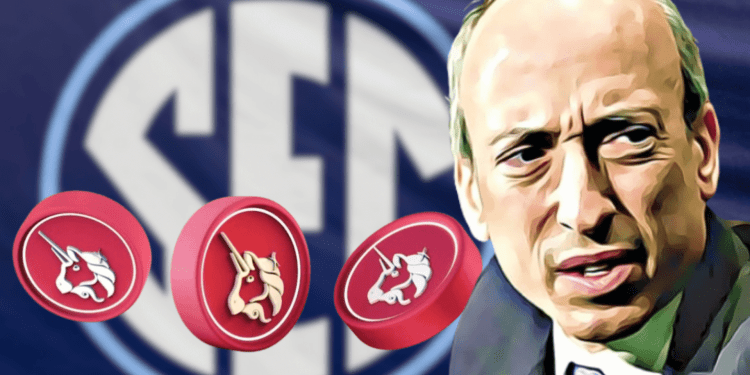- Uniswap Labs filed a response against the SEC’s Wells Notice alleging that its governance token UNI resembled a security and that it acted as an unregistered broker.
- Uniswap argued that its services are distinct from centralized exchanges, as users maintain custody of their funds and interact via automated smart contracts, without Uniswap playing an intermediary role.
- Uniswap also contested the SEC’s claims that liquidity pool (LP) tokens are securities, stating that they are issued as accounting tools, not for investment purposes.
Earlier this month, the Securities and Exchange Commission (SEC) sent a Wells Notice to Uniswap Labs, putting the company on alert for potential legal action. The SEC takes issue with Uniswap’s governance token UNI, which it says resembles an unregistered security. Uniswap Labs strongly disagrees with the SEC’s claims and has filed a detailed rebuttal.
The SEC’s Allegations
The SEC alleges Uniswap’s UNI token functions as a security. It accuses Uniswap Labs of acting as an unregistered broker by facilitating token trades. The SEC also contends liquidity pool tokens issued by Uniswap are securities, as they allow users to earn fees and governance rights.
Uniswap Labs’ Response
Uniswap rejects the SEC’s arguments as weak and unfounded. It says UNI tokens are used for governance, not investment, and liquidity tokens simply track user deposits. Uniswap Labs argues it is not a broker, as it never takes custody of user assets or executes trades. Recent court rulings support its stance.
Potential Impact on Crypto Innovation
Uniswap Labs warns the SEC’s aggressive actions could stifle innovation and drive companies offshore, ultimately hurting consumers. It urges the SEC not to pursue enforcement, saying DeFi protocols like Uniswap represent the future of finance.
Conclusion
The battle between the SEC and Uniswap Labs highlights the regulator’s expanding scrutiny of the crypto industry. Uniswap firmly believes decentralized exchanges are legal and will fight any enforcement action. The outcome of this dispute could shape DeFi regulation for years to come.














